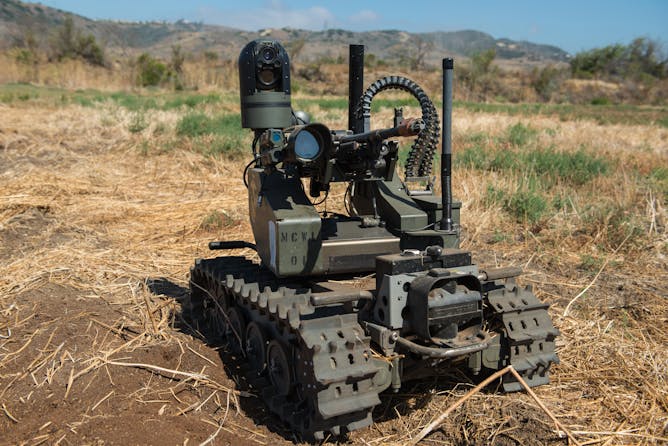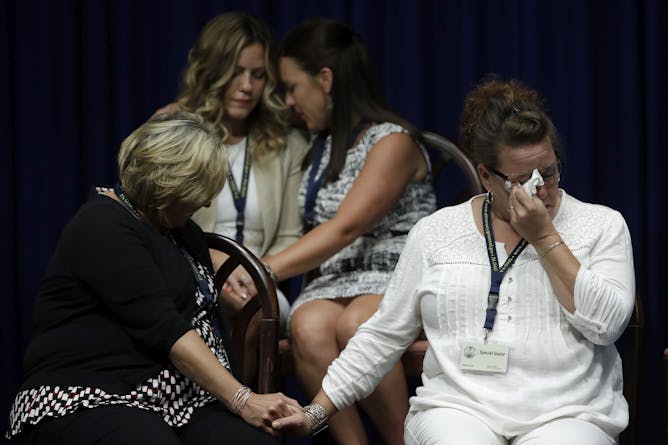Editor's note
|
|
Even if you don’t have kids, you probably know that teens are spending a lot of time with their smartphones. But how has this influenced their consumption of other media, from television to books? Using survey data gathered from over 1 million U.S. teens since 1976, psychologist Jean Twenge studied how their media habits have changed over time – and found one big loser.
As an international arms-control meeting approaches, a new report examines the moral and ethical implications of creating robots that can decide on their own whom to target and when to fire upon humans. The report’s lead author, Bonnie Docherty of the International Human Rights Clinic at Harvard Law School, explains how the history of humanitarian law provides a way to evaluate new weapons technologies and what it suggests for the
future.
A new grand jury report says at least 1,000 cases of sexual abuse by clergy in the Catholic Church were covered up by church leaders in Pennsylvania. Georgia State scholar Timothy D. Lytton writes that the full story of many cases across the country hasn’t been told because bishops hid the crimes. Civil lawsuits filed by victims could compel bishops to disclose additional information still hidden away in secret church archives, he
says, but only if legislators change laws that in most states bar such suits.
|
Nick Lehr
Arts + Culture Editor
|

|
|
Top stories
|

SAT reading scores in 2016 were the lowest they’ve ever been.
Aha-Soft/Shutterstock.com
Jean Twenge, San Diego State University
In 1980, 60 percent of 12th graders said they read a book, newspaper or magazine every day for pleasure. By 2016, only 16 percent did.
|

The U.S. military is already testing a Modular Advanced Armed Robotic System.
Lance Cpl. Julien Rodarte, U.S. Marine Corps
Bonnie Docherty, Harvard University
A standard element of international humanitarian law since 1899 should guide countries as they consider banning lethal autonomous weapons systems.
|

Victims or their family members react to a Pennsylvania grand jury investigation that identified more than 1,000 child victims of clergy sexual abuse.
AP/Matt Rourke
Timothy D. Lytton, Georgia State University
In the wake of new revelations about clergy sex abuse and cover-up in Pennsylvania, civil lawsuits brought by abuse victims may be the only effective way to hold Catholic church officials accountable.
|
|
|
|
|
|
|
Health + Medicine
|
-
Joan Cook, Yale University
Academic research brings people close together as they collaborate on shared goals and projects that often last decades. Saying goodbye to a collaborator can be as hard as saying goodbye to family.
-
Janice Chambers, Mississippi State University
Five years after the first chemical weapons attacks in Syria that killed more than 1,400 people, a team at MSU may have solved the problem of getting nerve agent antidotes inside the brain.
|
|
|
|
From our international editions
|
-
Holly Betts, University of Bristol
Genetic data has helped scientists develop new estimates for the origin and evolution of life on Earth.
-
Asit K. Biswas, National University of Singapore; Cecilia Tortajada, National University of Singapore
The Belt and Road Initiative will not be starting entirely from scratch. China has already invested heavily in several African railways.
-
Marc Hudson, University of Manchester
Prime Minister Malcolm Turnbull has abandoned the emissions-reduction component of his signature energy policy, in the latest chapter of a brutal decade-long saga for Australian climate policy.
|
|
|
|
| |
| |
|
|